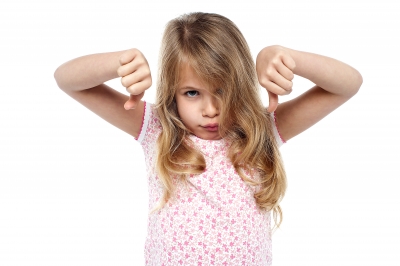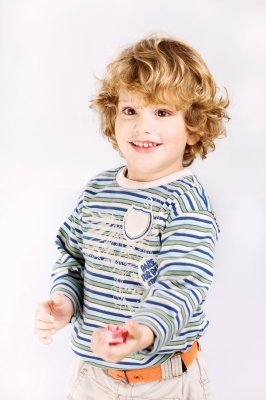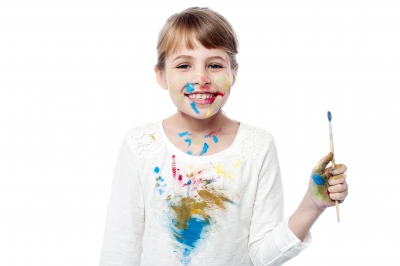
Isn’t it strange that we, parents, condition and program our children to have a strong Self Identity (Ego) and at the same time unknowingly we lower or damage their self esteem by shaming them. All children have the highest regard for the opinions and feelings of their Parents about them. When children feel that their parents respect them and are having a high opinion about them, the child lives a magical life. If they feel that their parents do not respect them, as they have a very low opinion of them and/or poor feelings for them, then life can be very sad and depressing, becoming a difficult struggle for the child.

Therefore, please be very careful in communication with children and definitely avoid the following or similar real life situations which lower the child’s self esteem or shames them, giving them the feeling that their parents do not respect or appreciate them. Quite a few of the statements below are inspired by the Podcast of Dr. Pippa Grange, Psychologist with Dr. Rangan Chatterjee.
- When parents verbally abuse the child by angrily labelling them as stupid, untidy, clumsy. cheeky, slow, or making statements like she/he will never learn mathematics, will never do much with her/his life, etc. Such adjectives and statements hurt the child immensely and affects their Intellect. So much so, such statements can become a prophecy of what the child may become when it grows up
- When the child is seeking the parent’s attention but the parent is too busy and ignores or negatively reacts to the child. Ideally, the parent can respond briefly and inform the child that she/he is busy at the moment and will definitely revert back to the child soon. Whenever they can, parents should give their intimate presence to the child which is sharing quiet times and love rather than giving advice and disciplining them. When the child is talking, parents should patiently listen and understand the child’s point of view without commenting, ridiculing or laughing at it, or correcting or suggesting alternatives, and opinions immediately.
- Angrily reacting by immediately correcting or criticizing the child’s behavior instead of understanding why the child is behaving inappropriately. The child may be hurting inside for reasons of ill health, hunger, lack of adequate sleep, over burdened with studies, homework or because of too many extra curricular activities scheduled for the child. Problem could be emotional too, like inadequate loving or attention or understanding from the parents, parents who are quarrelling often, a fight with a family member or a friend, or being prevented in doing an activity that it wants to do badly, or not getting what it wants, etc.
- Reacting or angrily punishing or even threatening to punish the child either rightly or wrongly. Many parents think that punishment is a means to discipline a child as a disciplined child is easier to manage for modern day, double income, busy, working parents. However, punishment is an act of conditional (not unconditional) love on the part of parents, which hurts rather than helps a child’s self esteem and also has short term results. A punished child can build up anger against the parent and become rebellious as it grows up and is physically bigger and stronger to challenge her/his parents. Or it can stop loving it’s parents and seek love from strangers or other unsuitable persons. Or it can go into a depression which can handicap the child for a good portion of it’s life. Punishment can be easily replaced by love to help the child to live life fully and happily rather than perform to the requirements of the parents.
- Parenting with Love takes time and the parents have to be patient. Love parenting is helping the child to live life on it’s terms and not be focused only on outstanding achievements and outcomes. But the results will be positive and happy for their relationship as well as the results will be permanent. Parents need to be aware that disciplining a child or making it conform to our and/or our society’s standards is actually like shaving of the rough edges of the child which are the essential beauty and uniqueness of every child according to psychologist Dr. Pippa Grange. Regretfully, disciplined children are stressfully performing in life instead of living life fully and happily
- Not sharing the joy of our life’s journey, instead being focused on achievements and outcomes. Focusing on achievements will make the child perform life rather than live it, according to the Dr. Grange. Shaming the child, when it does not win, or stand first or when it fails will hurt the child’s self esteem and it will feel worth less. Not coming first, not winning or failing are the more common occurrences and the reality in everyone’s lives. As long as the child has done the best it can, parents should see it as a Deep Win for the child deserving applause, despite the results. It is mathematically improbable that everyone stands first or everyone can win every time. Losing does not mean that the child is a loser according to Dr. Grange
- Focusing on scarcity and fear to motivate the child. Instead, Parents should keep reassuring the child of the abundance it has in it’s life and that most of our fears are imaginary
- Comparing the child with other children or siblings and adversely commenting on the child’s lower performance and capabilities
- Praising another child in our own child’s presence without first showing warm affection for our child or praising our child first.
- Highlighting or discussing mistakes and failures of the child. specially in the presence of other persons
- Not understanding, not loving and hugging the child when the child is physically, mentally or emotionally hurt
- Not allowing the child to experience her/his feelings fully by ignoring or denying them. Not helping the child to see or become aware of her/his feelings and/or experiences which the child will know best, feel them and help the child replace them if required
- not accepting or respecting the young child, or teenager or grown up child as she/he is now or not accepting the child’s ideas and plans
- being focused on perfection rather than sharing openly and honestly about ourselves as we are now and our relationships as they exist now. Essentially parents should not be dishonest and not cover up their own shames or fears according to the Dr. Grange. They should allow the child to express her/himself truthfully without fear of retribution
- making the child do things in a particular way, which conveys to the child that if she/he does it in any other way, she/he is not good enough.
- not letting go or not trusting the child to live her/his life properly
- asking the child to apologise instead of letting her/him be and do what she/he feels right in every moment and continue to be her/himself without feeling shameful
- not allowing the child to show up physically as she/he is now and in every moment, but to be presentable at all times. This will again drive the child to perform life rather than live it according to the Dr. Grange
- not allowing the child to be mentally free and be something or do something it likes as this keeps the child away from authenticity
- Focusing on the negative
- Not connecting intimately with the child with kindness and honesty. Intimacy is a journey that can start by eye contact and connect as you both are now, without guarding your own selves.
- Not bringing richness and depth in their relationship with each other
- Not accepting the child as how she/he thinks she/he is now. Pushing the child to be something or somebody other than what she/he is now.
In order to retain a high self esteem and a low level of shame in the child, Parents have to give unconditional love and respect the child as she/he is now. Parents should always be available to listen and understand the child’s point of view as they are expressing it. Most young children feel and expect that their parents are the only ones that will understand them fully. Parents should not disappoint them in this regard and let the child’s self esteem take a beating. Parents should handle the child with love, kindness and extra care no matter how young or old they are so that their self esteem remains at a high level and their shame at a low level . Then Magic will happen with the child and it’s life. 250920
Never underestimate the power of parent’s caring and love. One small gesture can change the child’s life. Being a friend of your child is the best gift you can give to your loved one! – adapted from Tara Brach’s YouTube ‘Learning to Respond Not React’ 101120
Image courtesy of photostock at FreeDigitalPhotos.net
Let us begin with an awakening call for parents!
All terrorists are disciplined adults who have been conditioned early in their life to kill innocent, uninvolved, random people for a cause decided and thrusted upon them by other adults.
 Disciplining implies obedience, carrying out the orders of someone else without questioning them! It means not allowing the person to use his/her intelligence before he/she takes action.
Disciplining implies obedience, carrying out the orders of someone else without questioning them! It means not allowing the person to use his/her intelligence before he/she takes action.
Disciplined children appear as very good children to the parents as well as others. But for the child, it means that the Intelligence, it has been born with, is not being used and soon it can atrophy as is the case with many young adults.
So, disciplining is like a sword with a very sharp edge capable of destroying the child’s intelligence. It has to be used with great care and understanding so that the child’s psyche and intelligence are least damaged. Along with Intelligence, disciplining destroys child’s artistic, creative and out of the box thinking capabilities.
How to have a decently behaved and disciplined child who is also very intelligent and creative?
First, all disciplining has to be done with love and never with anger, force or threat of punishment. Secondly, we have to discuss with the child and help him/her understand so that the child can find his/her ways of discipling him/herself. Thirdly, parents have to be patient and give plenty of time to the child to discipline him/herself. Fourthly, parents have to be role models and display the discipline in themselves of what they expect in their children.
A parent might reduce those stressful bedtime negotiations by seeking a verbal agreement (from the child) before agreeing to just one more game or story or TV program – Steve J. Martin, Noah J. Goldstein and Robert B. Cialdini in their book ‘The Small Big’
Image courtesy of imagerymajestic at FreeDigitalPhotos.net
When grandparents get involved with the up bringing of the grandchildren, more often than not, conflicts will surface with the parents who have their own knowledge and understanding of the methods of up bringing. So, it is best to have a hands off approach and let the parents manage the up bringing without interference or comments from the grandparents.
Only if the parents are willing, periodic but not more frequently than once a month, a foursome discussion can be held to improve the up bringing methods so that the best up bringing methods are used to benefit the child!
 Grandchildren whose grandparents are evolved (know their own selves reasonably well) are very lucky as such grandparents are capable of giving unconditional love to them and also they will respect, understand, accept, and not ignore their feelings and intelligence. Grandparents generally have the wisdom, time and the patience to do this unlike most parents who are under pressure for time because of either their career or their social commitments.
Grandchildren whose grandparents are evolved (know their own selves reasonably well) are very lucky as such grandparents are capable of giving unconditional love to them and also they will respect, understand, accept, and not ignore their feelings and intelligence. Grandparents generally have the wisdom, time and the patience to do this unlike most parents who are under pressure for time because of either their career or their social commitments.
Grandparents can also provide the grandchildren with space and time to be themselves and do whatever they wish to do as long as it is not unsafe or harmful to them or to others.
Grandparents , who are physically fit can take the children for excursions, picnics, games, visits to zoos, parks, museums and help develop their wider interests.
Grandparents can also help the children with their hobbies like craft, painting, singing, dancing, horse riding etc for all round development.
If grandparents are physically able, then they make very good baby sitters due to their love and blood bond with the child.
Exposure to grandchildren will keep grandparents youthful and joyful. It may seem strange, but there is a lot of learning grandparents can do from children, whose intelligence is not yet conditioned! Children come up with novel thoughts and ideas which can be very educative, inspiring and interesting to act and follow upon!
A gaping attachment void has been created by the loss of the extended family. Children often lack close relationships with older generation–the people who, for much of human history, were often better able than parents themselves to offer the unconditional loving acceptance that is the bedrock of emotional security – Gordon Neufeld, Ph.D., and Gabor Mate, M.D. in their book ‘Hold On to Your Kids’ *261017
Image courtesy of photostock at FreeDigitalPhotos.net
Many of us will be surprised and shocked to know that we, parents can:
- make a happy child into a frequently crying and sad child
- reduce the child’s inherent capabilities to love itself as well as others
- lower the self esteem and self confidence of the child
- prevent the child from its natural ability to mostly live fully in the present moment and make him/her live an incomplete life in the future or in the past
- lower the high Intelligence that every child has been born with
- lower the artistic and creative capabilities of the child
- make the child fear the future and build fear of others, animals etc
- make the child misbehave and throw tantrums
- make the child to hate studies, homework, reading, etc.
- make the child self centered and unsocial
- create eating disorders in childhood as well as in adulthood
- create psychological problems in the child which can last a lifetime, including loosing interest in doing anything or even in living

The way out of this is to first become aware of the psychological damage we are doing to our child due to our own lack of awareness, patience and ability to give love and attention to the child at all times! Children deserve this from us, but not many parents have this awareness, clarity or the capacity to keep giving!
Once we know our limitations, only then solutions to improve our own self will become apparent to us and result in our rearing happy, confidant and capable children! This blog as well as www.livelifefully.in and a lot of other relevant literature is available on the Internet which can help us parents to evolve to be perfect parents!
Image courtesy of stock images at FreeDigitalPhotos.net
How many of us will feel that this girl has misbehaved? There will be quite a few!! She has her face, neck, hands and clothes messed up and that can be considered as bad behaviour by many of us!
But, look at her face, eyes and her smile to feel her spirit which is very positive and joyous! Good parenting is when we do not judge the child’s act or the results. Instead, parents feel and respect the child’s spirit! This will help the child to grow up to be a strong person! Admonishing her, for what she has done happily, will break her spirit and make her a weak adult!
Last week my two and a half year old granddaughter and my eight year old grandson were singing on the Karaoke mics. Grandson is good and he sings english songs that he knows well and my granddaughter was singing nursery rhymes using the microphone but without any music as nursery rhymes are not yet available on our karaoke system.
Soon after finishing her Nursery Rhyme she quickly and happily threw the mic on the floor. The battery cover and the batteries flew out! I reacted to her act and tried to explain that the mic is not for throwing as it is very sensitive device and may stop working, so she should not throw it. She nodded, and she took the reassembled mic and started singing once again. A few minutes later she again flung the mic on to the floor. This time I was firm with her and reminded her that she was told not to throw the mic. As she did throw the mic again, she will not be given the mic for the rest of the day. With a long face she went and complained to her mother who was busy on the phone. Grandma noticed her sadness but did not know why, so she sent her back to me with my eldest son, her uncle to resolve the matter and bring back her cheer!
Three days later, I was lovingly washing and cleaning her hands and arms covered with paint as a result of her painting activity that she often loves to indulge in! She softly whispers to me ‘Dada (grandpa) I will not throw the mic again’. I was overwhelmed that she remembered and had suffered so long in silence. I gave her a big hug and reassured her of my unconditional love for her confirming that I will continue to love her even if she throws the mic again! I did explain, lovingly to her again, that the mic will get damaged if she throws it and we all will not be able to use it!
I learnt many things from my granddaughter that day! I had reacted, judged the act rather than felt and seen her spirit! She was happily experiencing throwing of the mic and to learn as to what happens. I learnt adult values of doing no damage or suffering no loss have no value or significance to the child as yet! I learnt children suffer silently when harsh words are spoken by parents and adults, who they love intensely and without any conditions!
So, how should I have handled the situation? Firstly, do not react. Give a big hug to the child when she/he does something that would be classified as bad behaviour by adults to reassure the child that we love her/him unconditionally despite her/his improper behaviour. Then if the child is calm, we can explain the consequences of the specific undesirable behaviour to the child. Having done this please be prepared for the bad behaviour to happen again! It will take time for the child to understand and change it’s behaviour! Parents need to be extremely patient! Know that even we parents cannot change easily and we keep making the same mistakes often!
Children as well as parents are not perfect, so we should not expect correct and perfect behaviour all the time. Mistakes are bound to be made by both, children as well as parents. We have to learn to forgive our children as well as our own selves when we make mistakes unconsciously or even when we do the right thing consciously but turns out to be a mistake later on!
Children’s misbehaviour, as defined and determined by us parents, should be ignored for reaction or commentary specially if it is infrequent. Whereas good behaviour should be complimented upon, as often as the parents can. It strengthens and reinforces the child to behave properly most of the time and grow into a strong adult.
Frequent misbehaviour generally has a cause behind it. All children are very intelligent but they are not yet capable of expressing themselves in ways that we adults can understand them. So, they may resort to misbehaviour as a means of communication. Parents should try to identify the cause of misbehaviour by trying to understand what the child is wanting to convey! At times this may require having a peaceful and open minded dialogue with the child.
Some of the causes of poor or bad behaviour can be:
a. child is feeling neglected as parents are not available or they are not willing to spend the time to listen and understand the child
b. child needs or wants something and it is being denied without an adequate explanation.
c. parents are putting unnecessary pressure on the child to participate, compete and excel or being presurised to eat more than it wants to or what it does not like
d. child could be wacky hungry, sleepy or unwell. Our eight year old grandson says wacky hungry is more than being very hungry and then he does become unreasonable in demanding rapid and specific food service!
e. parents are commenting and correcting just about everything the child is doing
f. parents are admonishing the child in public
g. punishment is being used as a tool to correct behaviour. Punishment does not help, it only reduces the self esteem of the child and the child may start to retaliate!
Adele Faber & Elaine Mazlish state in their book ‘How to talk….’ – It is our conviction that the child who is misbehaving does not need to be banished from the members of his family, even temporarily ( called Time Out). …… What Billy (child) needs is not time out but private time with a caring adult who will help him deal with his feelings and figure out better ways to handle them.
Children’s behaviour, intelligence and capabilities are a product of parental up bringing. It is therefore necessary for parents to be conscious of themselves first, for them to bring up happy, well behaved, confident, intelligent, capable and strong adults! We suggest parents, as well as parents to be, to visit, read and assimilate our blog http://www.livelifefully.in or other similar publications and books.This will improve their awareness and consciousness and help them in increasing their whole family’s harmony, happiness, health, as well as success!
We must never intentionally make a child feel bad, guilty, or ashamed in order to get him to be good….It is also too risky for the child to continue to want to be good for a parent or teacher who lacks faith in her intention to be good and thinks, therefore, that she, the child, must be tempted with bribes or threatened with sanctions. It’s a vicious circle. External motivators for behaviour such as rewards and punishments may destroy the precious internal motivation to be good, making leverage by such artificial means necessary by default. As an investment in easy parenting, trusting in a child’s desire to be good for us is one of the best…..If the desire to be good for us is not treasured and nurtured, the child will lose his motivation to keep trying to measure up. It is children’s desire to be good for us that warrants our trust, not their ability to perform to our expectations. – Gordon Neufeld, Ph.D., and Gabor Maté, M.D. in their book ‘Hold On to Your Kids’ 221117
Image courtesy of stockimages at FreeDigitalPhotos.net
 Yes, there is a very important question, parents as well as grandparents should ask themselves regarding up bringing of our children!
Yes, there is a very important question, parents as well as grandparents should ask themselves regarding up bringing of our children!
The zillion $ question is, are we aware that we are helping to seed in desires in our children which take away their peace and happiness and drives them to constantly compete and work to succeed in the external world? If we are aware, then the method we adopt will keep our children in less distressful condition as they face the challenges of life! It is hard to avoid having desires, we just can make it less stressful for our children!
The key is to be a role model and live our own life with very little or no stress! This comes from loving what we are thinking and doing. If there are things we have to do that we do not love, being aware of it, makes it much easier to do it!
Children pick up stress points from parents; so we have to be aware and allow the ups and downs of life to flow through us smoothly without getting overly stressful and upset!
Image courtesy of digitalart at FreeDigitalPhotos.net
 The only factor that is most critical in the proper up bringing of a child are the Egos of both the Parents. Parental Ego thinks it knows what is best for the child! The reality and the truth is that the child knows what is best for its own self. Parents have to only help the child discover its own capabilities and take charge of itself as soon as possible.
The only factor that is most critical in the proper up bringing of a child are the Egos of both the Parents. Parental Ego thinks it knows what is best for the child! The reality and the truth is that the child knows what is best for its own self. Parents have to only help the child discover its own capabilities and take charge of itself as soon as possible.
Before we Parents say or do something we have to become aware of our thoughts as well as our actions. We should ask ourselves the following questions:
- Will it help the child to grow to be whatever it is capable of becoming and not be a clone of our own selves to fulfill our incomplete desires and expectations?
- Will it help the child continue loving and respecting itself?
- Will it improve or destroy the inherent intelligence the child is born with?
- Will it destroy the happiness and peace already existing within the child?
- Will it improve or destroy the child’s harmony with itself as well as with the external Universe
- Will it help the child gain independence as soon as possible?
In bringing up children we have to have qualities close to that of our Creator, who gives us everything from sunshine, air, water food, intelligence, health, happiness, harmony, peace and success as well as children without our asking!
Children are a piece of Divinity that our Creator is sharing with us! So, treat them like Divinity giving them lots of love and respect! All the children, no matter whose they are, deserve our unconditional love and attention. We just have to patiently watch them grow stronger from within, building capabilities of facing all the challenges in their life, enjoying their life, and living it well and fully too!
The only way to ensure this for our children, is to watch or be aware of our Ego. This will then reduce or eliminate the damage our Ego can cause to our children giving them a safe and enjoyable passage through their life!
Bringing up strong children helps parents to discover their own true identity and lead a great life too! So, there is a dual advantage, for both parents and children. Therefore do not lose this wonderful opportunity for developing awareness and living life fully as a consequence of healthy and positive upbringing of our children!
Child abuse happens when parental Ego is unaware that it seeking it’s own comfort and convenience over the child’s comfort and convenience. Parent’s awareness, of their Ego and it’s desires, will reduce and eliminate child abuse completely! – The Totality
In order to give unconditional love to our children, parents have to learn to give unconditional love to themselves. This implies accepting and loving our own self, including our Ego, as it is now and not loving oneself because of what we are doing or have achieved in our life. –The Totality
Parental and social conditioning and programming of a child arises from parental and social Egos which are generally anxious and afraid for the child’s safety as well as it’s future. So, most children’s upbringing has a severe negative bias leading to numerous negative thoughts in the child’s mind. Parents need not become over anxious with the negativity in the child’s mind. Allow the child to experience these thoughts fully. Such thoughts will not necessarily bring negative results as ‘Karmaphala’ (fruits of our labour) are not determined by our thoughts, but by the Supreme Power known as God to most of us.- The Totality 040221 *
Image courtesy of stockimages at FreeDigitalPhotos.net
Every child is born with a Subconscious Intellect, a grandiose power of energy, intelligence and capabilities. Initially all the child’s actions emanate from this fabulous Infinite Subconscious Intellect which has its source as the Universal Infinite Intellect!
The Subconscious Intellectual state is the same as the state of just Being and it is the real identity of every child. It is not unique but is very powerful and perfect and the same in all the children!
So, when the child cries for food, being wet or in pain, this crying activity is automatic from the Subconscious. It is not yet conscious of any of these internal or external situations.
As the child recognises its mother and that it is separate from the mother and other close relatives, its unique identity starts to develop. This is the beginning of the formation of the child’s Ego, an imposed or acquired identity which is based on inputs from its external world!
Soon, the child responds to the name it has got from its parents and begins to have a sense of being a separate individual, a sense of possession of its parents as well as objects it is associated with like toys, books, I Pads, etc.. The Ego is now in the process of being strengthened.
As the child gets compliments from friends and relatives for its external achievements wherein the parents highlight that the child is better than others, the Ego becomes stronger! Compliments like your are the best, greatest, smartest child in the whole world reinforces its Ego.
Then as a teenager and as a young adult, acquiring more objects and successes in the external world, the Ego becomes larger than life and then its processes of destruction of relationships begin. The first relationships to be under duress are with the parents who have lovingly brought up the child and helped it to amass such a huge Ego!!!
This building up of the child’s Ego is really unavoidable! Almost all of the problems in everyone’s life are a creation of its own Ego!
Is there a way out! We think there is!!
Instead of complimenting the child for external achievements of acquiring possessions, trophies and positions, the parents should help the child build wholesome inner qualities by suitably complimenting the child in instances which highlight the specific inner quality the child has acquired or built!
Start with Being Happy as the most important inner quality- Do say to the child that you appreciate that she is able to maintain being happy for most of the day and that is a very important strength it has acquired!
most of the day and that is a very important strength it has acquired!
Sharing– when your child shares a toy, game or a book with another child, do say that to the child that she/he has developed this good quality of sharing with others!
Loving- If a child has done well in an exam do tell her/him that he/she has learnt to love what it is doing and that is the reason for doing well in anything including the exam. If the child shows love for other people or objects do make them aware that you are appreciative of this love!
Honesty- If the child owns up for doing something knowing that the parents will be upset with it, then instead of becoming angry, the parents should compliment the child for developing the good inner quality of being honest!
Trust- Look for acts of trust that the child does and highlight to her/him that they have this wonderful quality in them
Inner Strength- Compliment the child when it is hurt and is able to cry and get back to normal state soon, all by himself
Forgiveness- Compliment the child for being friendly with another child with whom there was a fight in the earlier meeting
Decision making– When a child starts to choose its clothes or what it eats, do compliment her that she has become capable of making decisions on her own and that we as parents are accepting her decisions fully!
Communication- If the child says ‘Please help me get off the cycle’, instead of challenging, coaxing or forcing the child to get off by himself/herself, compliment the child for his/her clear and complete communication and respond to it by helping the child get off. It will help the child build its self esteem too, besides acquiring good communication skills
Memory– When the child can repeat what has been read or heard by her/him earlier, do tell her that she is managing to build herself/himself a good memory!
Reasoning-When the child reasons out a good solution, it is necessary to compliment the child for developing the powers of reasoning
In every external success of the child locate the inner quality that the child has developed which gave it the success and highlight and compliment the child for that inner quality! Comparisons with other children is not to be done under any circumstances, whether they are siblings or friends!
Conscious parents act as role models and so they have to display strong inner wholesome qualities, which our children will tend to copy and grow up as children who are strong from within. This inner strength not only keeps the child healthy and happy but it also helps the child succeed without much stress in the external world too!
Children of Conscious parents, who help them build good and strong inner qualities within themselves, will be successful, happy, harmonious, peaceful and without fear, anxiety and worry! They will have very little need for their Ego to help them succeed or protect them in the future! Hopefully, these children will grow up more Aware of their own Ego and its many, many limitations and pitfalls and lead a full life with very little interference from their Egos!
Image courtesy of marin at FreeDigitalPhotos.net
We have been programmed in our Subconscious to find fault in others, blame others and then try and change them. This, we have picked up from our parents and persons close to us in our early growing up years till the age of seven. Such conditioning gives us an illusion of being superior to others as we remain unaware of our faults and the mistakes we have been making in our life and we continue to remain unaware that primarily, we need to change our own conditioning (Ego) and evolve and stop wasting our life on improving others. – The Totality 241118
The greatest discovery within a human being is that of the ‘Subconscious Intellect’ (SCI), which is within us from the time of conception! It is the one responsible for building up the organs and our whole body and maintaining it not only while we are in the womb but after we take birth and throughout our life! Some call it ‘The Soul’ or ‘The Spirit’!
conception! It is the one responsible for building up the organs and our whole body and maintaining it not only while we are in the womb but after we take birth and throughout our life! Some call it ‘The Soul’ or ‘The Spirit’!
It is a gigantic Powerhouse of Energy and Infinite Universal Intelligence. Our Intuitions and Creativity spring out from this source! It is aware of all that has happened in this Universe, what is happening now, as well as what will happen in the future!
How fortunate it is that every child is born with this enormous strength within itself of the ‘Subconscious Intellect’! It maintains all the involuntary functions like breathing, blood circulation, nervous system etc.
Furthermore, it assures every child success, good health, happiness, harmony and Peace!
After a child is born it interacts with others through its SCI only and there is innocence and amazing intelligence in what it does. Later on after a year or so, the interactions with the external world, including parents, relatives, teachers, society and the external environment, leads to the creation of the ‘Conscious Intellect’ (CI) within the child. The Conscious Intellect is largely the ‘Ego’ along with its Analytical, Diagnostic, logic and reasoning capabilities. A small portion is that of non judgmental ‘Awareness’ which is the door that leads us from our Conscious Intellect to our Subconscious Intellect.
Unfortunately, our Conscious Intellect has limited Intelligence, Knowledge and experience so most of the conclusions arrived at by it are not perfect conclusions. With the imperfect conclusions it starts interfering with our Subconscious Intellect. Our Subconscious Intellect accepts everything the Conscious Intellect believes and does, as true and correct. Fortunately, it does not have logic or reasoning capabilities so our involuntary functions do not get upset by our Conscious Intellect!
For example, if the Conscious Intellect (CI) of the child says that I will be sick as I got wet in the rain, the Subconscious Intellect (SCI) will go ahead and make the body sick. If CI says that I will fail, then SCI will ensure that the child will fail in achieving whatever it is trying to achieve!
So now, the corollary of this is fascinating and mind boggling! We have the greatest power within our own self and every child has it too! If we want to succeed we just have to believe we will succeed and the SCI will deliver success. If we want to be healthy again, all we have to do is to believe that we are healthy and SCI will automatically deliver health to us! If we want to be happy we have to believe we are happy and we will be happy right away! That is the positive power of SCI available to everyone including children.
Parents have to appreciate that every child has this phenomenal capabilities of living a life without fear, anxiety and worry as it has total control over its own life through its SCI. It can easily and comfortably live a life of success, good health, happiness, harmony and peace. It just has to believe in it and its own SCI will deliver!
If there is a situation that needs to be changed, then we have to help the child to think positively that a solution will happen, before falling asleep in bed and once again after waking up in the morning! SCI will either give the solution, or make the circumstances such that the solution will arrive automatically!
Whew! What a relief to all of us parents who carry the burden of success, health, happiness etc of the child! Knowing this we can all, including our children, live a great and fulfilled life!
To understand this post fully and believe in it, we recommend strongly that we parents and everyone else too read the book titled ‘The Power of your Subconscious Mind’ by Dr. Joseph Murray.
Fearless, anxiety and worry free living is available to all of us. Make the most of this post and live life fully from here onwards!
 One of the most important faculties we have as a child, as well as a grown up, is that of Imagination, the greatest gift that humans get! It is quite common in small children but unfortunately it disappears as we grow up due to poor parenting! Parents tend to destroy the imagination of the child by their logic and reasoning and try to bring the child closer to what they think is reality!
One of the most important faculties we have as a child, as well as a grown up, is that of Imagination, the greatest gift that humans get! It is quite common in small children but unfortunately it disappears as we grow up due to poor parenting! Parents tend to destroy the imagination of the child by their logic and reasoning and try to bring the child closer to what they think is reality!
Imagination is actually the corner stone of creativity, innovation, as well as of achievements! What we imagine soon becomes reality for us provided our Conscious Intellect ( Ego) does not destroy it by logic and reasoning! The Universal Intelligence within our Sub-conscious mind delivers to us in the future what we imagine! Our Conscious Intellect (Ego) will not understand how or why this happens! But It has to remain quite and peaceful for the imagined situations to happen!
If we want to be happy, first we have to imagine we are happy!
If we want to be healthy, we have to first imagine we are healthy!
If we want to be successful, we have to first imagine that we are successful!
Reasoning destroys imagination! So, be very careful when using logic and reasoning if we want our children to be happy, healthy and successful!
Imagination is fun for children and we, parents should encourage them to imagine so that their Sub-conscious mind will direct their actions for the imagined results to happen. History is full of instances of new inventions which have been a result of imaginations of various individuals. When children realise or become aware of the strong connection between imagination and their future reality, they will tend to live a life free of anxiety, worry and fear!
Encourage children to imagine and help them play imaginary games when they are young so that their imagination faculty remains alive and active to serve them throughout their life!

